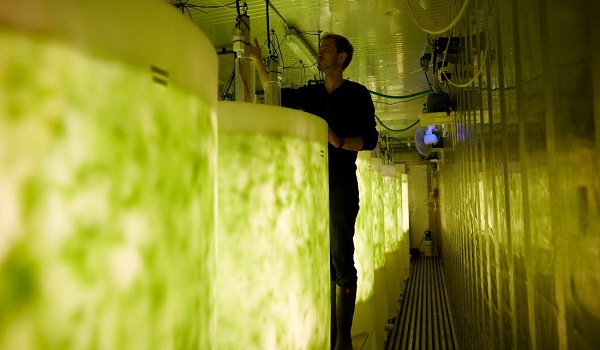Through a significant new innovation project, the University of Copenhagen will produce seaweed for the food industry using nutrients and CO2 from prawns and fish aquaculture. The SeaFree project will establish a closed, sustainable cycle on land over the following four years that uses CO2 and leftover nutrients from prawn and fish farming, which would otherwise pollute the sea and cause global warming. The seaweed produced is both nutritious and full of umami taste, in addition to collecting pollutants that would have otherwise been released into the atmosphere and aquatic environment. The seaweed is produced in a single 40-foot container in a week by mixing salt water, CO2, nutrients, and LED lighting, leading to an incredibly quick harvest period.
The initiative is being carried out in cooperation between the businesses Pure Algae, DryingMate, Food Diagnostics, Sigrid Therapeutics, XOventure GmbH/Rigi Care, KOST, SOF Odden Caviar, and HanseGarnelen, and is sponsored by Innovation Fund Denmark with The SeaFeed initiative is a Danish initiative to create recipes to raise awareness of seaweed as a component of home-cooked meals. It consists of climate-friendly fish, prawns, and sea lettuce, a form of seaweed that is high in protein, fiber, and other nutrients. Sea lettuce is used to make a variety of dietary supplements and as a tasty side dish with seafood purchases. The SeaFree Synergy Solutions technology can be used everywhere in the world on a global scale and has clear advantages for the environment. South Korea is particularly interested in the technology and the advancement of the initiative.
The SeaFeed initiative comes as efforts to take advantage of algae’s sustainability and health advantages increase. The ‘Seafood Alg-ternative’ initiative aims to turn algae into plant-based seafood replacements. North Sea Farm 1 will be situated in a wind farm off the Dutch coast and will look into the possibility of utilizing seaweed for carbon capture thanks to the €1.5 million in financing it has received from Amazon.com. The AlgaeProBANOS project, supported by the Horizon Europe initiative of the European Union and a member of the SUBMARINER Network, will work for four years to find novel, high-value products and services for a range of applications by utilizing the special qualities of algae. The research claims that algae are a very adaptable and sustainable resource that can be grown without the use of freshwater, arable land, additional fertilizers, or pesticides.
The initiative will introduce eight cutting-edge items made from algae to the market, helping to satisfy the rising need for high-quality, circular bio-based products that are also environmentally benign. Algae is a novel bioresource that many large-scale industrial players are interested in using to reduce the environmental impact of their goods. AlgaeProBANOS will significantly advance the usage of algae throughout a wide range of businesses in Europe, making it a commonplace good for coming generations.


